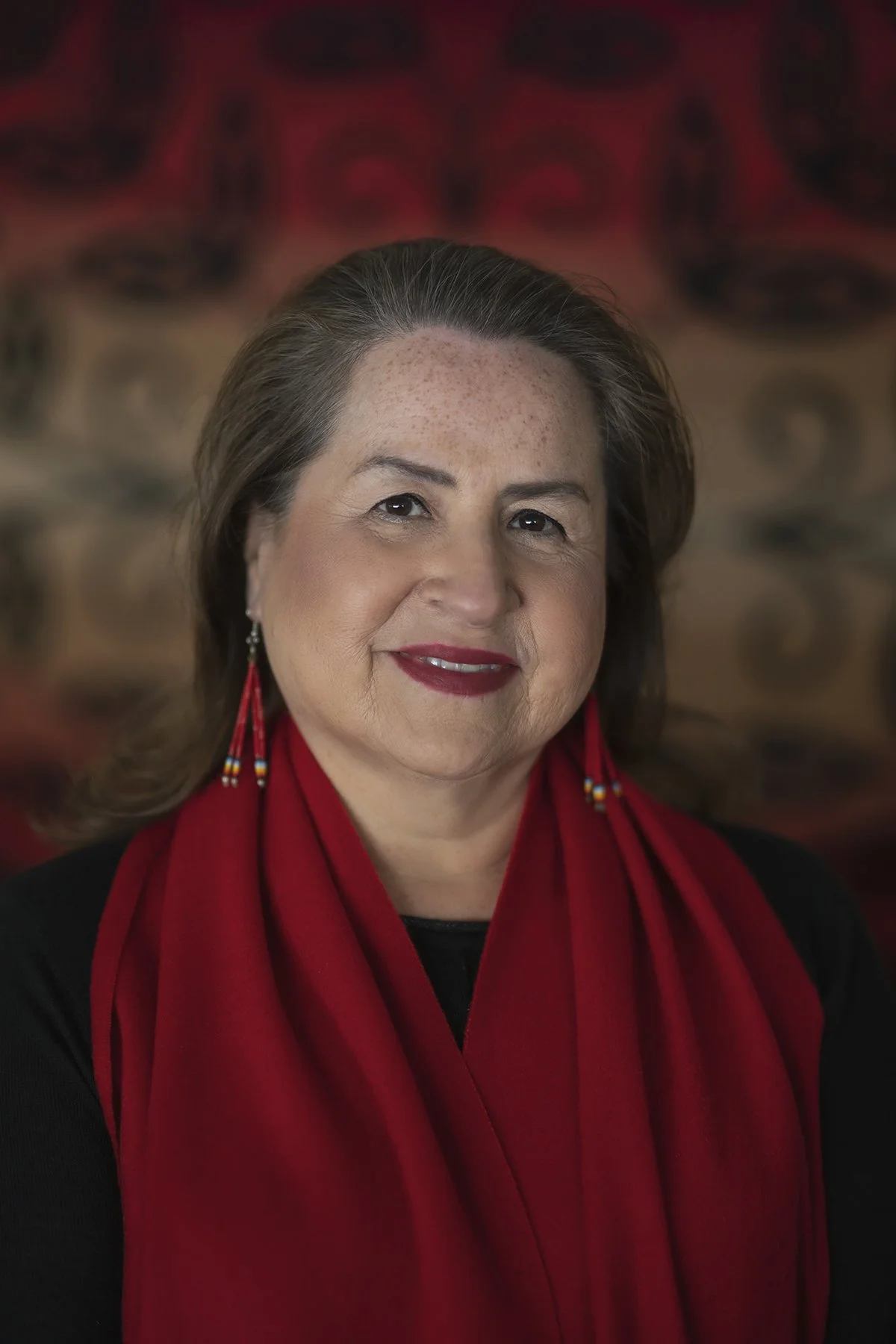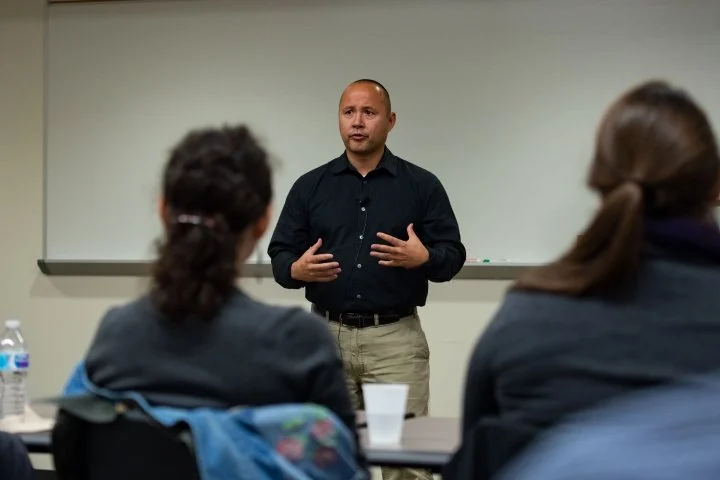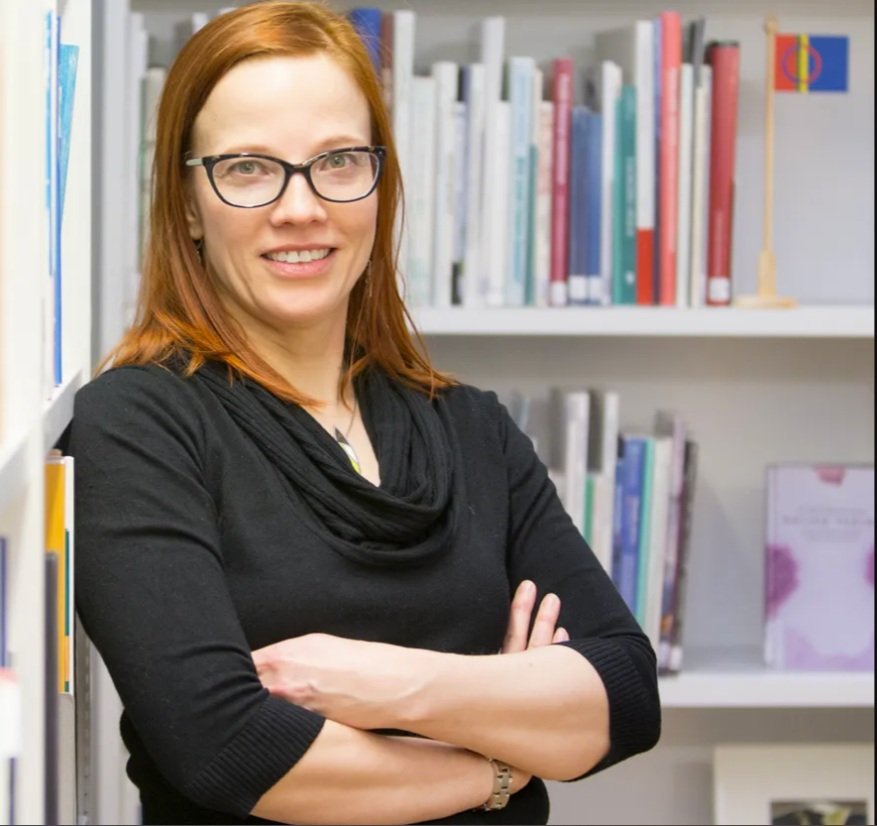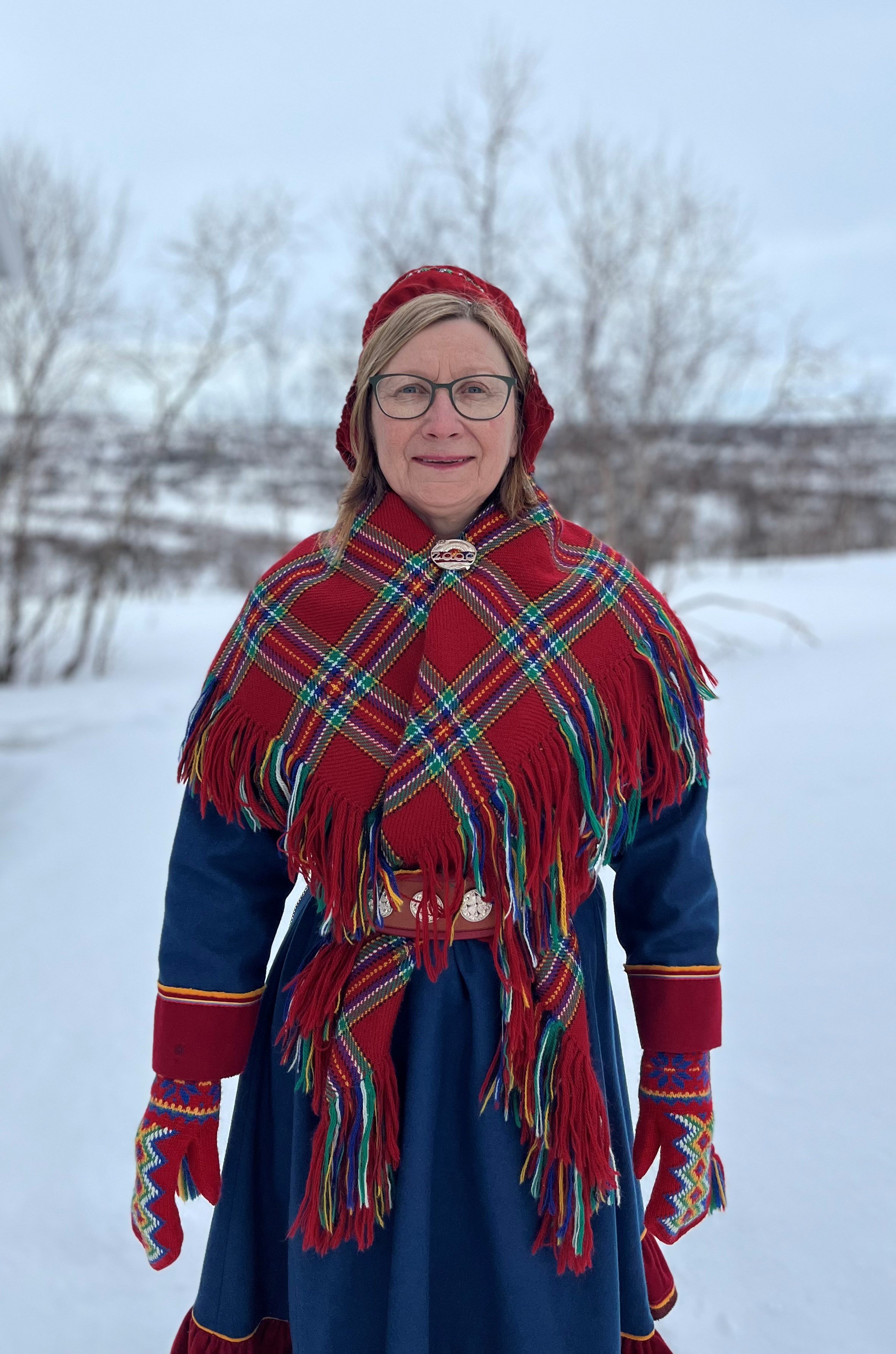Meet Our Team
Gunlög Fur
Britt Kramvig
Janne Lahti
Katarina Pirak Sikku
Sami Lakomäki
Lindsay Doran
-
Former Project Manager and Current Researcher, Department of Cultural Sciences, Linnaeus University, Sweden
Gunlög Fur’s scholarship clusters around colonialism and cultural encounters to investigate what happens when Indigenous peoples and newcomers meet and draw lines that differentiate, create, and alter relations. She is interested in how culture is negotiated in encounters between people, how stories and histories are activated to create distance, and how they seek to bridge these distances.
One aspect Fur finds particularly intriguing and revealing in the context of cultural and colonial encounters is gender, and she has studied how different perceptions and practices of gender influenced colonial encounters and were transformed in the process. Fur’s research on American Indian and Saami history, primarily in the 17th and 18th centuries has led to comparisons which she has found to be useful. Fur has also studied the involvement of the Nordic region in colonial projects and expansion and in recent years her aim has been to develop theoretical and methodological tools to investigate and discuss multiple and concurring claims of reality, experience, and meaning in colonial spaces.
Gunlög’s current projects investigate concurrent and entangled histories of American Indians and immigrants in North America.
Academia-net
Linnaeus University -
Project Manager and PhD, yleisen historian dosentti akatemiatutkija, Filosofian, historian ja taiteiden tutkimuksen osasto dosentuuri, Tiedekunnan yhteiset (Humanistinen tiedekunta), University of Helsinki, Finland, and Linnaeus University, Sweden.
Janne Lahti is a historian who works as an Academy of Finland Research Fellow at the University of Helsinki, and currently teaches at Linnaeus University. He has been awarded the Fulbright Fellowship, Huntington Library fellowships, and research funding from the Kone Foundation, among others. His research focuses on global and transnational histories of settler colonialism, borderlands, the American West, German colonialism, and Nordic colonialism. He has published numerous articles, edited special issues, and also eight books, including Finnish Settler Colonialism in North America (with Rani-Henrik Andersson; Helsinki University Press, 2022), Kolonialismi Suomen rajaseuduilla (with Rinna Kullaa and Sami Lakomäki; Gaudeamus, 2022), German and United States Colonialism in a Connected World (Palgrave, 2021), Cinematic Settlers (with Rebecca Weaver-Hightower; Routledge, 2020) and The American West and the World (Routledge, 2019). Lahti also serves as the chief editor of the academic journal Settler Colonial Studies.
Twitter
University of Helsinki -
University Lecturer and Cultural Anthropologist, Oulun yliopisto.
Sami is a cultural anthropologist specializing on the histories of Indigenous peoples and colonialism. His research has focused largely on Native Americans, especially the Shawnees. Recently, he has also started to explore the histories of the Sámi people and colonialism in Fennoscandia. Lakomäki’s special field is that creative mixture of anthropology and history known, in North America, as ethnohistory.
In addition to the University of Oulu, Sami has worked at the Southern Methodist University (Dallas, TX).
Sami is interested in power and politics in Indigenous societies, the complex relationships between Indigenous peoples and colonial states, colonialism, space as a political and cultural construct, borderlands, and Indigenous and colonial interpretations of "the past." Lakomäki explores many of these themes in his first monograph Gathering Together: The Shawnee People through Diaspora and Nationhood, 1600-1870 (Yale University Press, 2014), as well as in articles published, for example, in Ethnohistory, NAIS: Journal of the Native American and Indigenous Studies Association, and Journal of the Early Republic.
Oulun yliopisto -
Artist and Researcher
Katarina Pirak Sikku lives in Jokkmokk, where she also grew up. After her studies at the School of Art at Umeå University, she moved back to Jokkmokk. She wanted to be closer to the light and the dark but also to explore her archive, the archive of the landscape and the people.
For many years, she has dug into the racial biological material. It is a work in progress that may not have an end. In between, she follows the family's trail back in history. There are not many physical objects left, but she puts together a puzzle between the family's oral traditions, public archival documents and the stories of places. She usually starts from her own history because she does not have a mandate to be a representative for anyone else.
There are so many others who have researched the history of her people; as a result, she doesn't wish to recreate the researchers' methods. Her main driving force is to be a subject in her own history.
Katarina’s Website -
Ph.D. Candidate and Researcher, Department of Geographical and Historical Studies, University of Eastern Finland
Lindsay Elizabeth Doran is a doctoral student, co-teacher, researcher, and historian at the University of Eastern Finland, Joensuu. She obtained her MA in Transnational and Comparative History (Modern Europe) from Central Michigan University, USA, with minors in Comparative Indigenous History and Public History. Doran’s research background includes Indigenous history, subaltern studies, gender and sexuality, and museum studies.
Her current research explores the role of colonialist rhetoric within the publications of Indigenous residential school systems of North America (specifically, Michigan and the Great Lakes region); exploring the impact of school policies and publications upon Anishinaabeg communities, traditions, and descendants. She is also studying comparative aspects of Finnish Sámi residential school policies, and plans to delve further into this subject during her postdoctoral work.
Additionally, Lindsay is intrigued by the intersectionality of Finnish immigrants in the Great Lakes region with Anishinaabeg communities, and hopes to explore the subject further in future.
LinkedIn
ResearchGate
University of Eastern Finland -
Professor, The Arctic University of Norway
Britt Kramvig is a professor at UiT: The Arctic University of Norway. Her interdisciplinary research practices Indigenous methodologies and engages with everyday practices of reconciliation, memory, and landscape; asking, for instance, what an Indigenous archive can be and how it is connected to landscape as archive. She argues that we should not merely focus on stories as products, but also on how storytelling can inform an emergent politics of memory and enact landscapes of remembrance.
She has been co-editing the book Recognition, Reconciliation and Restoration: Applying a Postcolonial Understanding in Social Work and Healing, and has co-written a range of publications including; Decolonized Research-Storying: Bringing Indigenous Ontologies and Care into the Practices of Research Writing; Improving the Relationships between Indigenous Rights Holders, and Researchers in the Arctic: an Invitation for Change in Funding and Collaboration.
Britt is a fellow at the University of Durham, connected to the project Exploring Arctic Soundscapes; and also is a member of the ongoing research project Mediating Arctic Geographies. Kramvig has a seat in the Norwegian Scientific Academy for Polar Research and at IASC, The International Arctic Science Committee. At UiT, she is a member of the research group Indigenous Voices (IVO) - Álgoálbmogii jienat and of Narrating the Postcolonial North.
CRISTIN Profile
ResearchGate
Collaborative Partners










